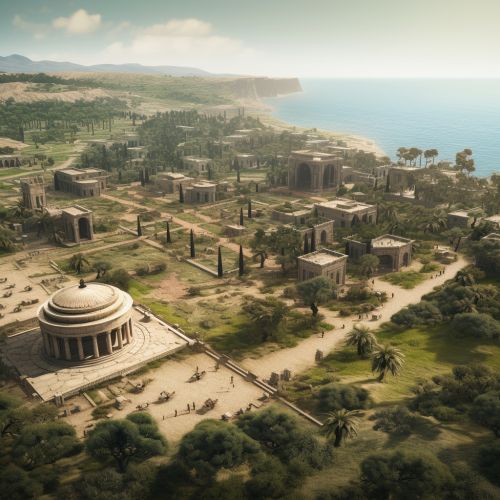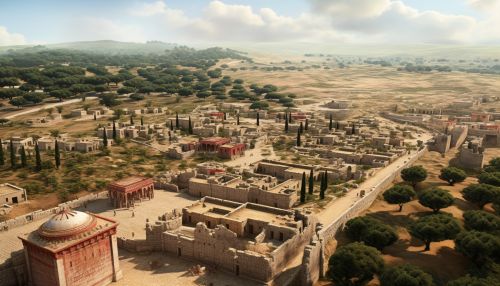Carthage
History
Carthage was a Phoenician city-state located on the eastern side of the Lake of Tunis, close to the Mediterranean Sea. The city was founded by Phoenician colonists from Tyre in the 9th century BC. It became a large and rich city and thus a major power in the Mediterranean. The resulting rivalry with Syracuse and Rome was accompanied by several wars with respective invasions of each other's homeland.


Government and Politics
Carthage was a republic in the most genuine sense of the word. Not only did it have a form of democracy in the Assembly of the People, but it also had a system of checks and balances in the form of a Council of Elders and a pair of annually elected chief magistrates known as Suffetes, similar to Roman Consuls.
Economy
Carthage's economy was based on trade with other states around the Mediterranean, which was facilitated by its position on the sea and its natural harbour. The city was known for its production of textiles, metals and glassware, which were traded for raw materials and foodstuffs.
Military
The military of Carthage was one of the largest in the ancient world. It was composed of citizen-soldiers, who served as heavy infantry, and foreign mercenaries, who served as light infantry and cavalry. The navy of Carthage, which was its main military force, was one of the most powerful in the Mediterranean.
Religion
The religion of Carthage was a polytheistic faith that worshipped a pantheon of Phoenician deities, including Ba'al Hammon and Tanit. The religion was an integral part of the city's culture and had a significant influence on its politics and economy.
Culture
The culture of Carthage was a blend of Phoenician and North African influences. The city was known for its literature, art, and architecture, which were influenced by its diverse population and its interactions with other cultures.
Decline and Fall
Carthage's decline began in the Second Punic War, when it was defeated by Rome. The city was destroyed in the Third Punic War in 146 BC. Despite attempts to rebuild the city, it never regained its former glory.
Legacy
The legacy of Carthage can be seen in the influence it had on the Roman Empire, which adopted many of its institutions and practices. The city's ruins are also a significant archaeological site, providing insights into the ancient Mediterranean world.
